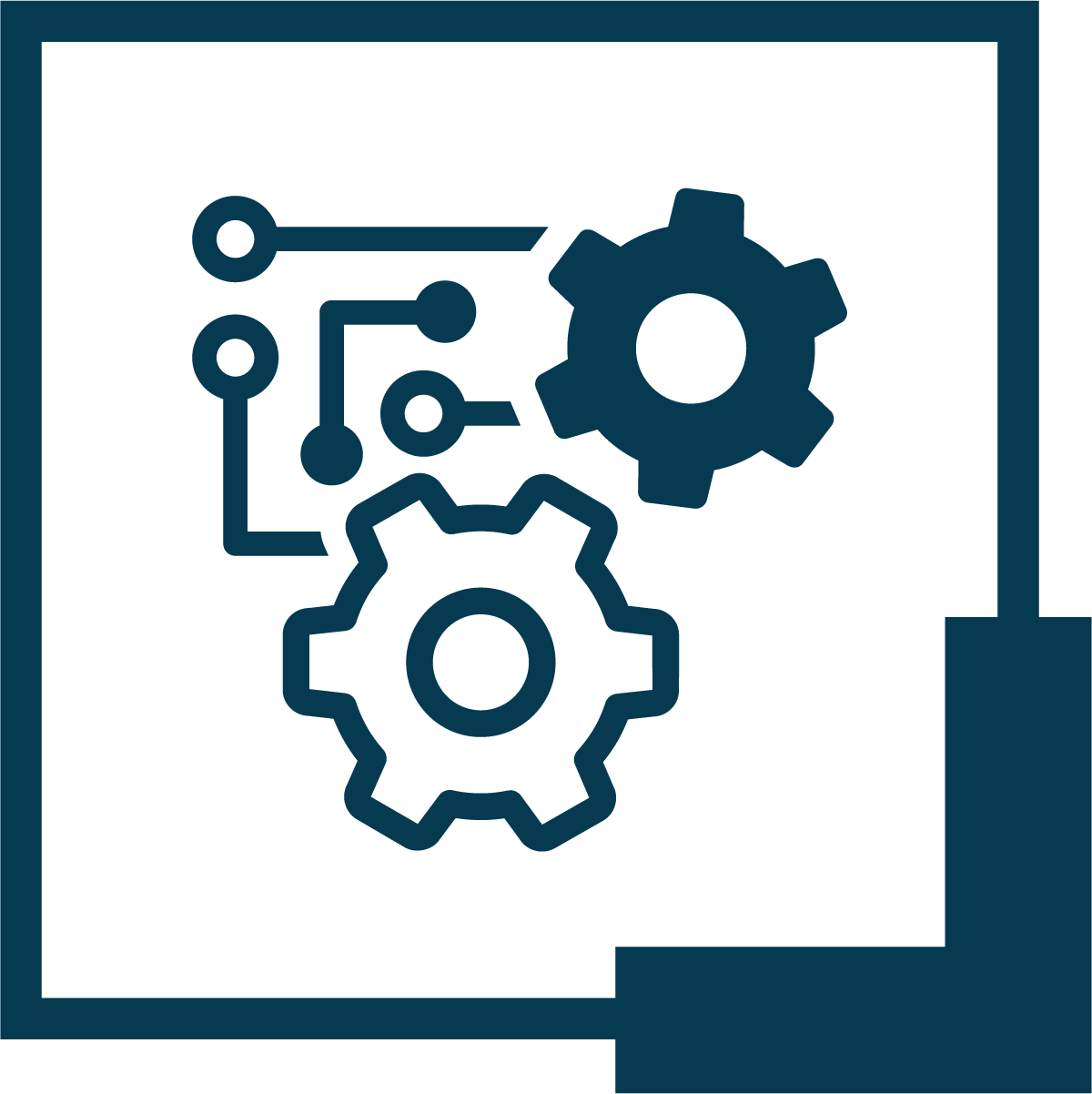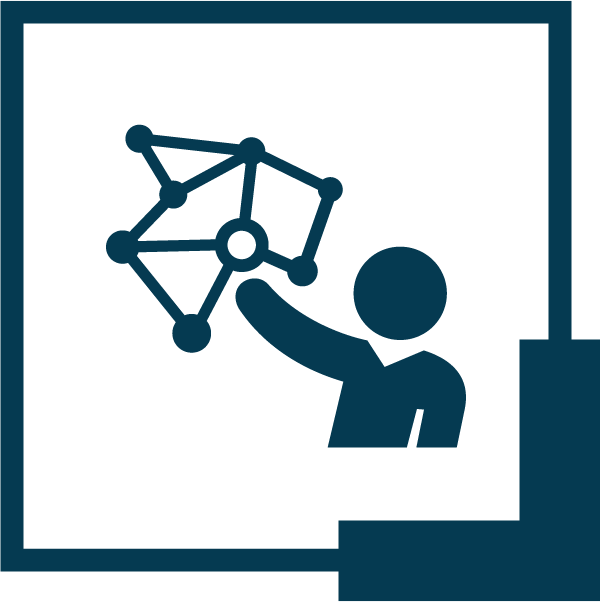In the fast paced era of today where technology never stops evolving, a new player is ready to take the stage – Quantum Computing. Unlike regular updates we see in technology, Quantum Computing is a groundbreaking shift, like going from using a simple calculator to a high-powered computer. In fact, Quantum Computing can touch the global market value of $1 trillion by the year 2035. But what does this mean for web development? Quantum Computing could change everything we know about designing and interacting with the web. Let’s take a closer look at Quantum Computing and how it might shape the future of web development.
Quantum Computing and the Science Behind It
Quantum Computing represents a fundamental shift in computational capabilities. While classical computing, the model we’re familiar with, works on bits that are either 0s or 1s, Quantum Computing operates on quantum bits, or “qubits.” Qubits have the extraordinary ability to be both 0 and 1 at the same time, thanks to a quantum principle known as superposition. Another principle, called entanglement, allows qubits that are entangled to instantaneously affect each other, regardless of the physical distance separating them. These two principles combined allow quantum computers to process massive amounts of data and solve complex problems much faster than classical computers.
Since the proposition of quantum theory in the early 20th century, there have been several groundbreaking developments. One of the significant milestones in the history of Quantum Computing was when Google’s Quantum Supremacy experiment in 2019 successfully solved a highly complex calculation in just 200 seconds – a feat that the world’s fastest supercomputer at the time would have taken 10,000 years to complete. And if that sounds surprising, Google’s latest quantum computer released in 2023, which boasts a whopping 70 qubits, is said to be 47 years faster than the number 1 supercomputer in existence.
As we delve into this remarkable world of Quantum Computing, it becomes clear that we are on the precipice of a transformative era in technology that is likely to redefine web development in Malaysia and around the world.
The Quantum Leap: Transforming Web Development and Beyond
When considering the impact of Quantum Computing, there are several key areas of opportunity in web development that are worth highlighting.
- Rewriting the Very Concept of Web Development
Firstly, Quantum Computing has the capability of transforming the entirety of web development itself. Given it can process vast amounts of data in seconds, Quantum Computing is giving birth to completely new web development nuances. For instance, quantum algorithms can optimize website architecture for better performance and enhance resource allocation during high-traffic times. Faster processing speeds mean more dynamic and interactive websites, providing a seamless user experience.
- Quantum Encryption and Web Security
Another exciting application of Quantum Computing is in the realm of web security. Quantum cryptography, particularly Quantum Key Distribution (QKD), uses the principles of quantum mechanics to encrypt data and transmit it in such a way that any attempt at eavesdropping can be detected effectively. This makes data transmission nearly unhackable, significantly bolstering web security.
- Enhanced User Experience
Finally, Quantum Computing promises to better UX by enabling highly personalized and interactive web experiences. It can transform how websites handle real-time updates, user interactivity, and data processing. For example, Quantum Computing can power real-time analytics, provide accurate personalization at a granular level, and enable real-time changes to web content based on user behavior.
The emergence of Quantum Computing represents a huge change in the way we think about web development. Now, let’s take a step deeper in how quantum computing is redefining the web.
Redefining the Internet: The Quantum Web
Here’s a look at Quantum Computing’s potential impacts that shows the caliber it possesses to revolutionize several areas in web development:
- Web Architecture
Traditional web architecture, which relies on binary data, could be outpaced by Quantum Computing. Quantum bits, or qubits, can exist in multiple states at once due to superposition, potentially leading to exponential increases in data processing speeds. This capacity could restructure web architecture, allowing web applications to perform complex computations, deliver real-time responses, and offer unprecedented interactivity.
Web-based AI: A Quantum Leap
Quantum Computing carries the potential to greatly advance web-based AI applications. The processing power of quantum machines can open doors for more advanced machine learning models and intelligent web applications. Enhancements can include faster training of AI models, larger dataset processing, and more precise real-time analytics.
The Quantum-Powered Search Algorithms
Search algorithms, critical to the web browsing experience, could be significantly improved with the power of Quantum Computing. Quantum supremacy claim showed Quantum Computing’s ability to perform tasks in seconds that would take classical supercomputers thousands of years. This level of processing power could lead to hyper-accurate, instantaneous search results, redefining web browsing.
Challenges in Bringing Quantum Computing to Web Development
Despite the exciting prospects, the journey to integrate Quantum Computing into web development isn’t without challenges. Here are some critical issues to consider:
Technical Complexities: Quantum Computing is a radical departure from classical computing. The World Economic Forum reports that only a minority of global IT companies currently possess the technical capabilities to implement it.
Infrastructure and Cost: The cost of developing quantum machines is relatively high. According to data, a 50-qubit quantum computer like D-Wave could cost more than $15 million.
Lack of Quantum-Ready Workforce: By 2025, the burgeoning field of quantum technology could potentially generate up to 10,000 job opportunities. However, the current trajectory indicates a major skill gap, with the quantum-literate workforce predicted to fall short of filling even 50% of these positions.
Making Quantum Reality: Applications, Key Players, and Preparing for the Future
Integrating quantum computing into web development is no longer a distant dream. From real-world applications to businesses investing in the quantum leap, the shift is evident. Let’s explore this in more detail.
- Quantum Computing in Action: Case Studies
IBM Quantum and Financial Modeling: IBM is developing quantum algorithms that can be applied to complex financial modeling, predicting potential future scenarios with greater accuracy than ever before. This can very well be applied to web development to create more accurate, secure and robust finance applications.
Microsoft’s Quantum Development Kit: Microsoft, a significant player in the quantum arena, released its Quantum Development Kit in 2017. This comprehensive suite of quantum programming tools is designed to enable researchers and developers to create and test quantum algorithms. It’s a significant step towards making quantum computing accessible and practical.
Rigetti Computing and Quantum Cloud Services: Rigetti Computing, a California-based startup, aims to offer Quantum Cloud Services (QCS) to other businesses. This platform lets developers design and test quantum algorithms on a 16-qubit quantum processor. Rigetti’s goal is to provide businesses with quantum computing on demand, much like cloud services today.
- Preparing for the Quantum Web
Quantum Programming Languages: Having developers equipped with languages such as Q# (Microsoft) and Qiskit (IBM) will be beneficial for future web development.
Understanding Quantum Mechanics: A basic grasp of quantum principles will help developers understand the possibilities and limitations of quantum computing.
Organizational Readiness: Businesses should start planning for quantum integration, including investment in infrastructure and skills training.
The quantum era is nearly upon us. It’s time for developers and businesses alike to get quantum-ready and embrace the future web.
Quantum Horizons: Projecting Impacts and Exploring Synergies
The quantum revolution is not an isolated event. It will ripple through the technology ecosystem, converging with other emerging technologies and redefining the future web landscape.
- Projecting the Quantum Impact on Web Development
In terms of web development, the advent of quantum computing brings with it promises of unprecedented shifts. Firstly, radical improvements in web performance are on the horizon, with quantum computers’ mighty computational power making load times and latency virtually obsolete, ushering in an era of instantaneous, ultra-responsive web experiences. Additionally, quantum computing’s ability to handle massive data sets with ease means that more complex, data-rich web applications could become the norm, transforming the landscape of web-based services. Moreover, quantum computing’s potential contribution to environmental sustainability can’t be ignored. With its potential to aid in climate modeling and material science, it could drive the development of more sustainable technologies and practices. Companies like D-Wave Systems are leading the charge in this arena, with significant work in quantum annealing demonstrating the intersection of quantum computing and sustainability.
- Quantum Computing and Other Emerging Tech: A Synergistic Future
Quantum and AI: Quantum computing could accelerate machine learning algorithms and AI capabilities, enhancing personalized web experiences.
Quantum and IoT: The internet of things (IoT) could be supercharged by quantum computing, with faster data processing leading to more efficient interconnected systems.
Quantum and 5G/6G: Quantum technologies could enhance the potential of 5G and future 6G networks, supporting ultra-high-speed, low-latency communications.
The future is quantum, and its amalgamation with other emerging tech is likely to create a new paradigm in web development.
Conclusion
As we stand on the precipice of a quantum era, it’s clear that Quantum Computing is no longer just a theoretical concept but a promising reality, promising to disrupt traditional norms and redefine the future of web development. It offers tantalizing prospects – unimaginable computational speeds, iron-clad quantum security, and a whole new level of interactive web experiences.
At Segwitz, we’re keeping our fingers on the pulse of this quantum revolution and are consistently exploring innovative technologies that will allow us to create cutting-edge solutions for our clients, ensuring they stay ahead in their digital journey. The web of tomorrow may be nothing like you’ve ever seen before. But with Segwitz as your trusted technology partner, you can surf the quantum wave with ease. Contact us today to know more or request free quotes today.





 Booking System
Booking System eCommerce
eCommerce On-Demand Services
On-Demand Services Community App
Community App Ordering App
Ordering App Loyalty App
Loyalty App Online Learning
Online Learning Directory
Directory Marketplace
Marketplace SaaS
SaaS P2P Platform
P2P Platform eHailing
eHailing Healthcare
Healthcare Finance
Finance Logistics
Logistics Education
Education Food & Beverage
Food & Beverage Retail
Retail FMCG
FMCG Sports
Sports Travelling
Travelling Manufacturing
Manufacturing Renewable Energy
Renewable Energy Mobile Application Development
Mobile Application Development Web Application Development
Web Application Development Source Code Review
Source Code Review Internet of Things (IoT)
Internet of Things (IoT) Cyber Security
Cyber Security SegWitz SandBox – Dev-Team as Subscription
SegWitz SandBox – Dev-Team as Subscription SegWitz Streamline – SOP Systemization
SegWitz Streamline – SOP Systemization SegWitz ScaleUp – Tech Transformation of SME & PLC
SegWitz ScaleUp – Tech Transformation of SME & PLC SegWitz StartUp – MVP & Scaling
SegWitz StartUp – MVP & Scaling